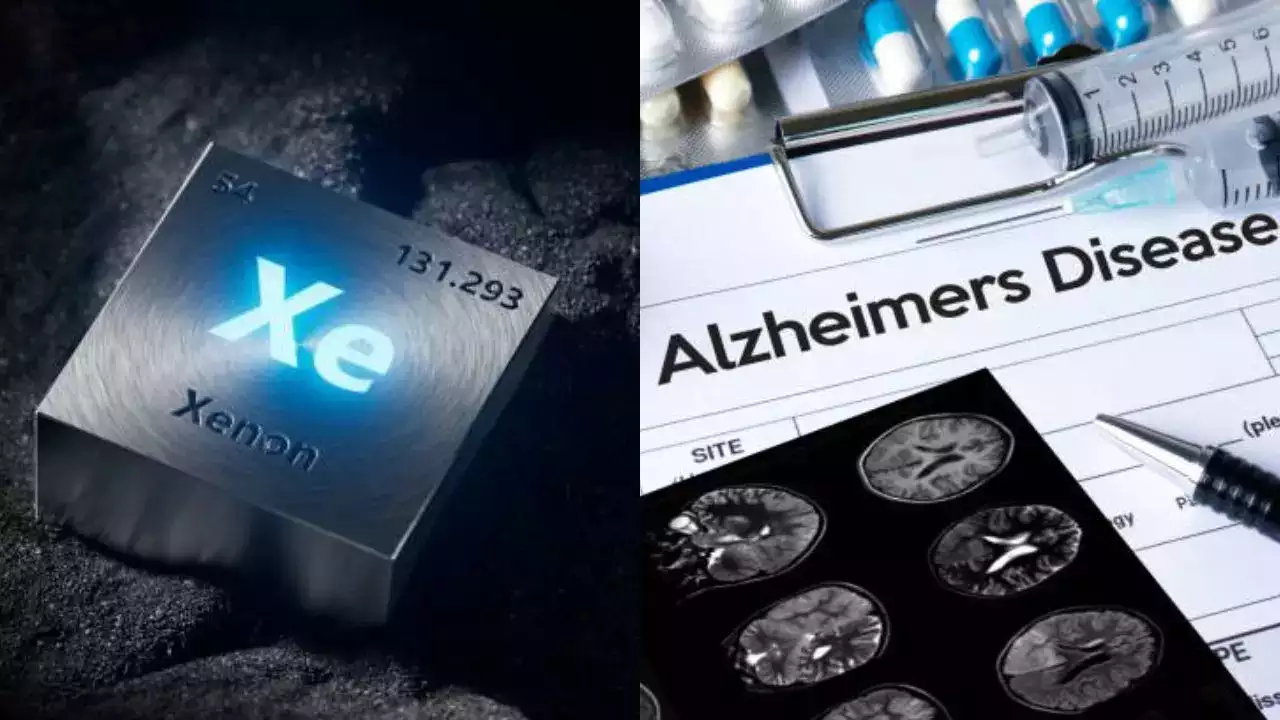
Xenon gas inhalation reduces brain atrophy and neuroinflammation
Researchers claim to have found an innovative way to treat Alzheimer’s disease—a common type of dementia that 55 million people are diagnosed with globally. While there is no cure for this brain disorder, there are ways and means to manage the symptoms.
According to experts, treatment progress has also been slow since, till now, this complex disease has not been understood fully. Researchers are now looking at xenon- a colourless, odourless, and tasteless gas that has neuroprotective effects. In a trial at Brigham and Women’s Hospital in Boston, the gas showed positive effects on the brain when inhaled by mice. A clinical trial on humans is now set to begin in the next few months.
How does xenon work?
According to the study, mouse models of Alzheimer's disease were treated with Xenon gas, which has been used in human medicine as an anaesthetic for treating brain injuries. Xenon gas penetrates the blood-brain barrier, passing from the bloodstream directly into the fluid surrounding the brain.
Researchers said Xenon gas inhalation reduced brain atrophy and neuroinflammation and improved nest-building behaviours in the Alzheimer's disease mouse models. It also induced and increased a protective microglial response that is associated with clearing amyloid and improving cognition.
“One of the main limitations in the field of Alzheimer’s disease research and treatment is that it is extremely difficult to design medications that can pass the blood-brain barrier—but xenon gas does. We look forward to seeing this novel approach tested in humans,” said Dr. Oleg Butovsky, a neuroscientist at the hospital and senior and co-corresponding study author.
How is xenon used?
The study published in the journal Science Translational Medicine has shown that mice with Alzheimer’s that inhaled xenon in a custom chamber had milder brain inflammation, less brain cell loss, and better cognitive function while building their nests. “If the clinical trial goes well, the opportunities for the use of xenon gas are great,” said study co-author Dr. Howard Weiner, principal investigator of the upcoming trial. “It could open the door to new treatments for helping patients with neurologic diseases.”
What is Alzheimer’s disease?
Alzheimer’s is a brain condition that causes a progressive decline in memory, thinking, learning, and organizing skills and eventually affects a person’s ability to carry out basic daily activities.
The symptoms of Alzheimer’s worsen over time and according to experts, the disease process starts at least ten years or more before the first symptoms appear. AD most commonly affects people over the age of 65 years.
Signs and symptoms of Alzheimer’s disease
The signs and symptoms of Alzheimer’s disease vary based on the stage of the condition. A few general symptoms include:
- Memory loss
- Having difficulty finding the right words to express thoughts
- Losing or misplacing objects more than usual
- Having difficulty making plans
- Having difficulty problem-solving
- Taking longer to complete routine daily tasks
- Having difficulty recognizing friends and family
- Urinary incontinence
- Have sleep disturbances
- Experience more personality changes, including being agitated or acting out
- Need help with self-care, such as bathing, grooming, showering and using the bathroom
Get Latest News Live on Times Now along with Breaking News and Top Headlines from Health and around the world.
